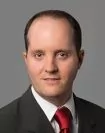The issue of whether a predictive dialer constitutes an automatic telephone dialing system ("ATDS") under the Telephone Consumer Protection Act ("TCPA") has been a critical litigation focus across the country since the D.C. Circuit's decision in ACA International v. FCC, 885 F.3d 687 (D.C. Cir. 2018). Yesterday, Judge Feinerman of the Northern District of Illinois ruled in Pinkus v. Sirius XM Radio, Inc. that a predictive dialer does not meet the TCPA's statutory definition of an ATDS. While no Federal Circuit Court of Appeals has addressed this question, the Pinkus holding – parting with a number of other District Court opinions – confirms that this issue remains hotly disputed.
In Pinkus, plaintiff alleged that Sirius XM Radio ("Sirius") violated the TCPA by placing over 100 predictively dialed calls to plaintiff's cellular telephone. Plaintiff argued that the Federal Communications Commission ("FCC") has twice determined, in 2003 and 2008, that a predictive dialer falls within the scope of the TCPA, even if it lacks the capacity to generate telephone numbers to be dialed randomly or sequentially. Moreover, plaintiff argued that, because the 2003 and 2008 FCC rulings were not timely appealed, ACA International did not disturb their conclusions.
Parting with other district courts, the court in Pinkus found that ACA International not only invalidated the FCC's 2015 ruling interpreting what constitutes an ATDS, but also invalidated the 2003 and 2008 rulings – in particular, as those rulings found predictive dialers to constitute an ATDS. The court first noted that, although the 2003 and 2008 orders were not timely appealed, the D.C. Circuit's analysis in ACA International "necessarily invalidated the 2003 Order and 2008 Declaratory Ruling" because all of these FCC rulings relied on the same flawed reasoning. Specifically, the FCC's inconsistent statements regarding whether a predictive dialer must generate numbers randomly or sequentially, or simply call from a pre-determined list of actual telephone numbers, created "significant uncertainty." ACA International, 885 F.3d at 701.
After deciding that the 2003 and 2008 FCC rulings were invalidated, the court held that a predictive dialer does not qualify as an ATDS under the TCPA. In so holding, the court rejected plaintiff's position that (a) the phrase "using a random or sequential number generator" modified only the verb "produce" and not the verb "store," and (b) a dialing system consequently is an ATDS if it can either produce numbers using a random or sequential number generator or simply store and dial numbers. The court found that "the phrase 'using a random or sequential number generator' necessarily conveys that an ATDS must have the capacity to generate telephone phone numbers, either randomly or sequentially, and then to dial those numbers." Because a predictive dialer dials from a set list of telephone numbers, rather than utilizing a random or sequential number generator, the court concluded that it is not an ATDS.
The issue of whether a predictive dialer constitutes an ATDS under the TCPA remains pending in a number of other cases around the country. The scope of TCPA litigation could decrease substantially should other courts follow the wellreasoned opinion in Pinkus and reject the FCC's past rulings.
The attorneys of Stroock's Financial Services Litigation, Regulation and Enforcement Group are well positioned to answer any questions you may have about the ATDS issue and other aspects of the TCPA.
The content of this article is intended to provide a general guide to the subject matter. Specialist advice should be sought about your specific circumstances.




